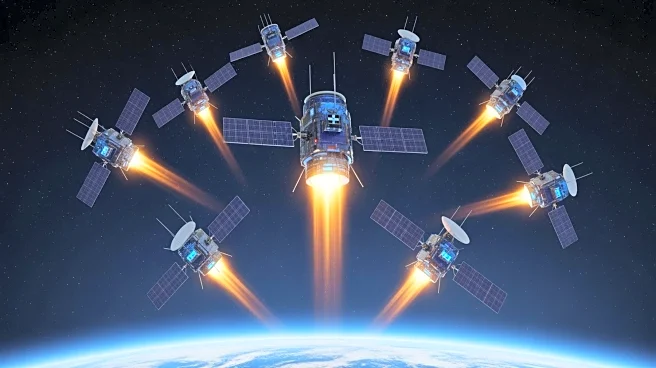What's Happening?
SpaceX, led by Elon Musk, is facing backlash due to the increasing number of Starlink satellites reentering Earth's atmosphere. As of September 25, 8,475 Starlink satellites were in orbit, with 8,460 operational.
However, astronomer Jonathan McDowell has noted a concerning trend of these satellites falling from low orbit to Earth at a rate of one to two per day. This has sparked discussions on social media, highlighting the environmental impact and potential hazards of these reentries. The satellites are designed to burn up upon reentry, but concerns remain about their complete disintegration and the environmental costs associated with satellite launches.
Why It's Important?
The issue of falling satellites is significant due to the potential environmental and safety risks they pose. The increasing number of satellites in orbit raises concerns about space debris and the possibility of Kessler syndrome, where colliding satellites create cascading debris fields, disrupting global communications. Additionally, the emissions from satellite launches are comparable to millions of diesel dump trucks, contributing to environmental pollution. The situation calls for regulatory scrutiny and potential legal actions if property or human life is affected by satellite reentries.
What's Next?
Experts have urged the FCC to pause further Starlink satellite launches until the environmental impacts are thoroughly assessed. This comes amid staffing shortages at the FCC, which could affect regulatory actions. The growing concern over space debris may lead to increased legal involvement if satellite reentries cause damage. The situation demands a balance between technological advancement and environmental responsibility, with potential policy changes to address the issue.
Beyond the Headlines
The broader implications of this issue include ethical considerations regarding the use of space and Earth's atmosphere as a dumping ground for technological waste. The environmental impact of satellite operations and launches highlights the need for sustainable practices in space exploration. The situation also underscores the importance of international cooperation in managing space debris and ensuring the safety and sustainability of satellite operations.









